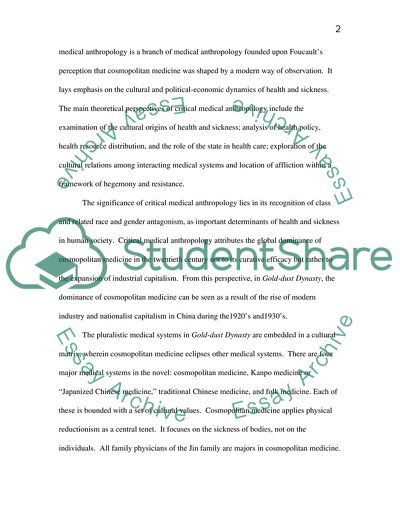Cite this document
(“A Critical Gaze of Scientific Medicine Essay Example | Topics and Well Written Essays - 1250 words”, n.d.)
A Critical Gaze of Scientific Medicine Essay Example | Topics and Well Written Essays - 1250 words. Retrieved from https://studentshare.org/medical-science/1546157-a-critical-gaze-of-scientific-medicine
A Critical Gaze of Scientific Medicine Essay Example | Topics and Well Written Essays - 1250 words. Retrieved from https://studentshare.org/medical-science/1546157-a-critical-gaze-of-scientific-medicine
(A Critical Gaze of Scientific Medicine Essay Example | Topics and Well Written Essays - 1250 Words)
A Critical Gaze of Scientific Medicine Essay Example | Topics and Well Written Essays - 1250 Words. https://studentshare.org/medical-science/1546157-a-critical-gaze-of-scientific-medicine.
A Critical Gaze of Scientific Medicine Essay Example | Topics and Well Written Essays - 1250 Words. https://studentshare.org/medical-science/1546157-a-critical-gaze-of-scientific-medicine.
“A Critical Gaze of Scientific Medicine Essay Example | Topics and Well Written Essays - 1250 Words”, n.d. https://studentshare.org/medical-science/1546157-a-critical-gaze-of-scientific-medicine.


